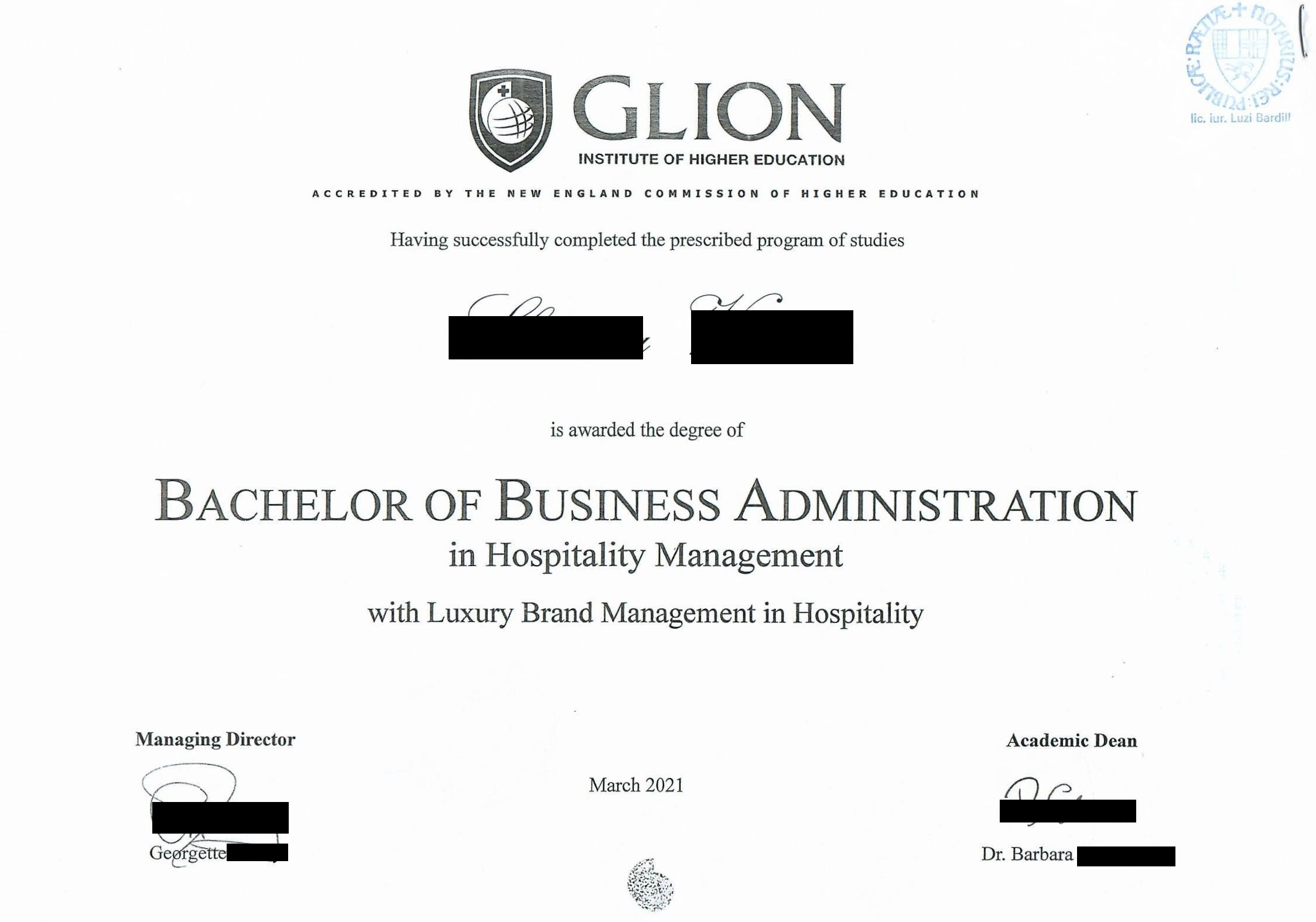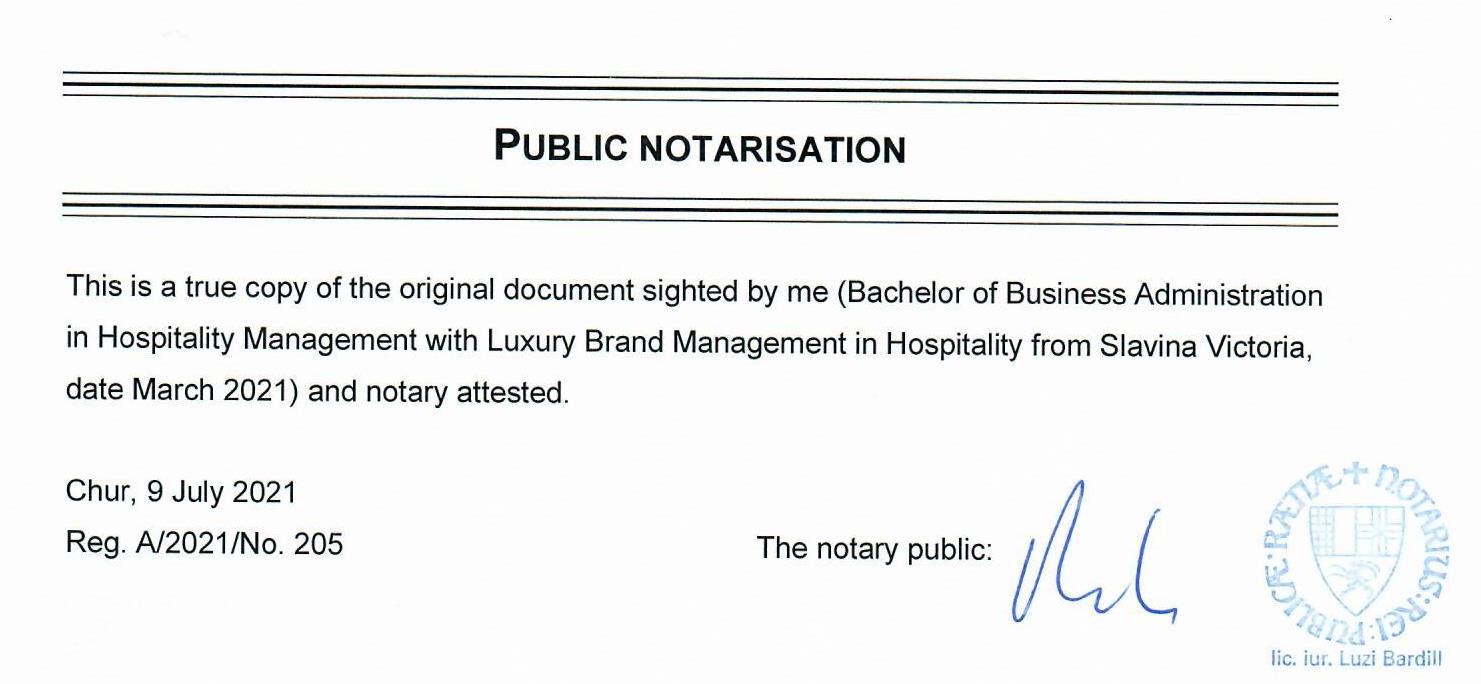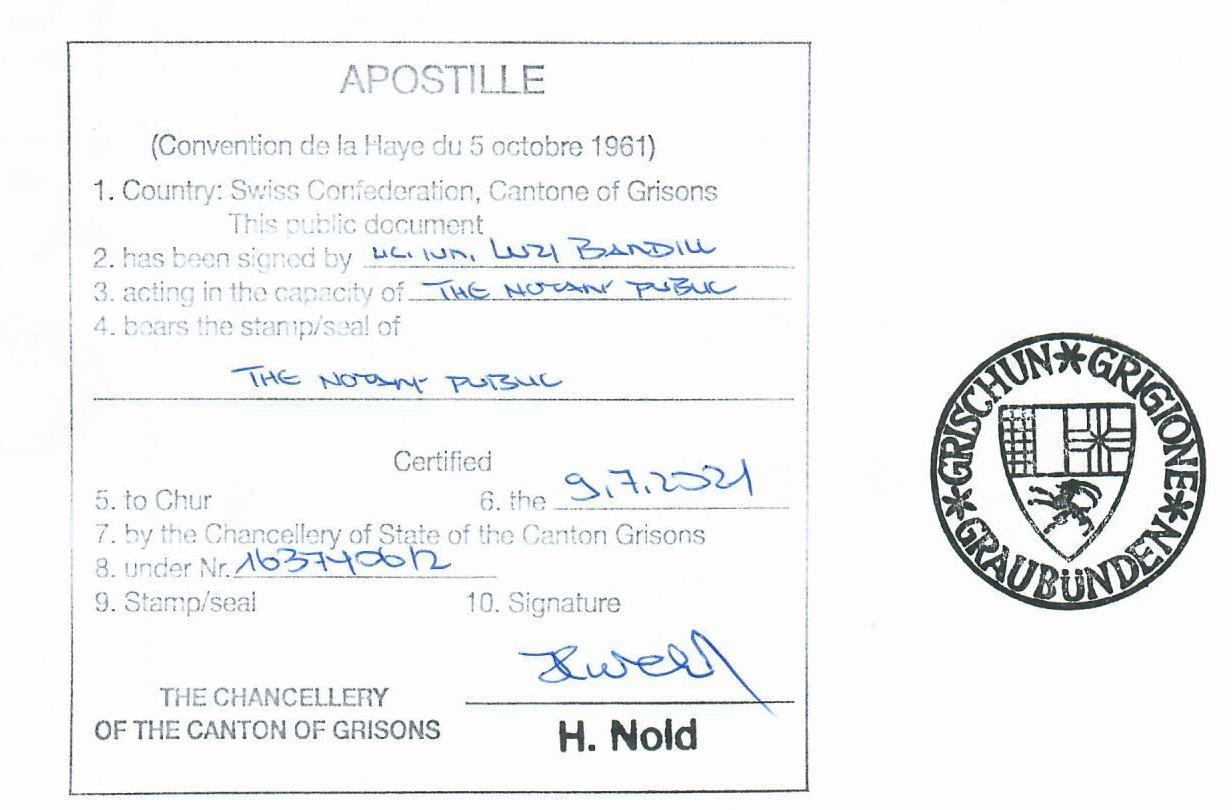
Degrees, certificates and other educational documents issued in Switzerland have no legal force abroad. In practice, this means that if such a document is not legalized, it will not be possible to enter graduate or post-graduate programs, or to get a job at a public institutions.
If you plan to use your Switzerland diploma in a country that is a signatory to the 1961 Hague Convention, it can be legalize it through a simplified procedure known as Apostille.
Why and in what cases is an apostille needed?
The apostille, or the “Hague apostille” is a certificate that authenticates the origin of a public document (e.g., a birth, marriage or death certificate, a judgment, an extract of a register or a notarial attestation). It confirms the authenticity of the signature and the authority of an official who signed the public document.
Commercial documents cannot be apostilled. Therefore, if you received a certificate of educational courses from a private company, which does not have an educational license, you will not be able to certify it with an apostille. Only documents from certified educational institutions with an official state license can be legalized through the apostil procedure.
At the same time, it should be kept in mind that Apostille confirms the fact of document issue and authenticity of signature of an authorized official, but it does not imply automatic access to work in specialized spheres.
An apostille stamp can only be affixed in the territory of the country in which the document was issued. It cannot be done through diplomatic or consular offices. The system of certifying documents by apostille in Spain is quite simple: the apostille is placed either on notarized copies of degrees, which are taken from local notaries, at the notarial board of the autonomous region where the notary is registered. Or on the original diploma, when the university itself certifies the degree in the office of the decedent. The second way is much more complicated and expensive, although for foreign authorities, as a rule, there is no difference whether the apostille is on the notarial copy or on the original.

When is an apostille not needed?
Most commercial organizations, when hiring employees for positions that do not require special access, will not require them to legalize their diploma through an apostille. In addition, the degree does not need to be apostilled if there is a special treatment between Switzerland and another country (such as in the case of EU countries, where there is a unified educational system throughout the EU).
The process of obtaining an apostille for degrees in Switzerland
In Switzerland, the process of obtaining an apostille for a diploma can vary depending on the canton where the diploma was issued.
- The system of certifying documents with an apostille in Spain is quite simple:
Submit the diploma to the appropriate Swiss authority for authentication. This may be the cantonal education department or the Swiss Conference of Cantonal Ministers of Education (EDK), depending on the institution. - After the diploma has been authenticated by the appropriate Swiss authority, it is necessary to send it to the Federal Department of Foreign Affairs (FDFA) for apostille certification.
- The FDFA will attach an apostille to the diploma, which certifies its authenticity and legal validity for use in countries that are parties to the Hague Convention Abolishing the Requirement of Legalisation for Foreign Public Documents.
- The original degree;
- If necessary, the original diploma supplement.
- Have the diploma authenticated by the appropriate Swiss authority, such as the cantonal education department or the Swiss Conference of Cantonal Ministers of Education (EDK). It's important to note that the specific requirements for authentication may vary depending on the authority involved, and may include notarization, translation, and/or other supporting documentation.
- After the diploma has been authenticated, it should be submitted to the Federal Department of Foreign Affairs (FDFA) for certification. The FDFA may require additional documentation or fees, and processing times may vary depending on the workload and other factors.
- Once the FDFA has certified the diploma, it must be taken to the embassy or consulate of the intended destination country for further certification. The embassy or consulate may require an appointment or specific documentation, and fees may be charged for the certification.
- 4. After the embassy or consulate has certified the diploma, it will be returned to the applicant for use in the intended destination country. The overall process can be time-consuming.

It's important to note that the specific requirements and procedures for obtaining an apostille may vary depending on the educational institution and the intended use of the document.
Documents required for legalization:
The appearance of the apostille in Switzerland is unified in all cantons and differs only in the cantonal seal.
What is an apostille?
What is an apostille? Why do I need an apostille? How do I get an apostille? - Our video will explain everything you need to know about the apostille. If you have a document that needs to be certified with an apostille for use abroad, Schmidt & Schmidt will assist you! We provide apostille services in more than 100 countries worldwide.
The appearance of the apostille in Switzerland is unified in all areas and differs only in the stamp of the collegia.
If you need to have a document issued in a foreign country apostilled, contact Schmidt & Schmidt.
We provide apostille services in more than 100 countries around the world.
Document delivery
Since in Switzerland notarized copies are only taken with the original document, it will be necessary to send the document directly to Switzerland. The cost of such courier delivery is calculated according to the rates of courier services.

Consular legalization
If your diploma is to be used in a country that is not a party to the Hague Convention, such as China, the United Arab Emirates, or Egypt, the document is subject to consular legalization. This is a more complicated procedure than apostilization. The consular legalization procedure for diplomas in Switzerland takes place in several steps:
It's important to note that specific requirements and procedures for consular legalization may vary depending on the country and embassy or consulate involved. Additionally, consular legalization can be a lengthy and complex process, so it's important to allow sufficient time for each step and potential delays.
Translation of an education documents
In order to use an education document abroad, after legalization it is necessary to make an official notarial translation. If the translation is made by a certified translator in Switzerland, the official authorities will not accept it.
The translation of the document must necessarily go through a verification procedure. This is a process in which the prepared translation is sent to the graduate to verify the correct spelling of the first and last name, the disciplines studied and the topics of research papers, since there may be inaccuracies in the translation.
A notarized translation can be laced with an apostilled notarized copy.
What is consular legalization?
In our video we are explaining what consular legalization is and where to apply for it.
Schmidt & Schmidt will assist you in all issues concerning the legalization.
Schmidt & Schmidt offers legalization in more than 80 countries all over the world.
You can always contact Schmidt & Schmidt, we have extensive experience in the legalization of a variety of documents and we provide all the necessary services in this area, including the making of notarized copies, translation, preparation of the necessary powers of attorney, legalization of documents before government agencies and foreign consulates, as well as delivery of finished documents to most countries in the world.





